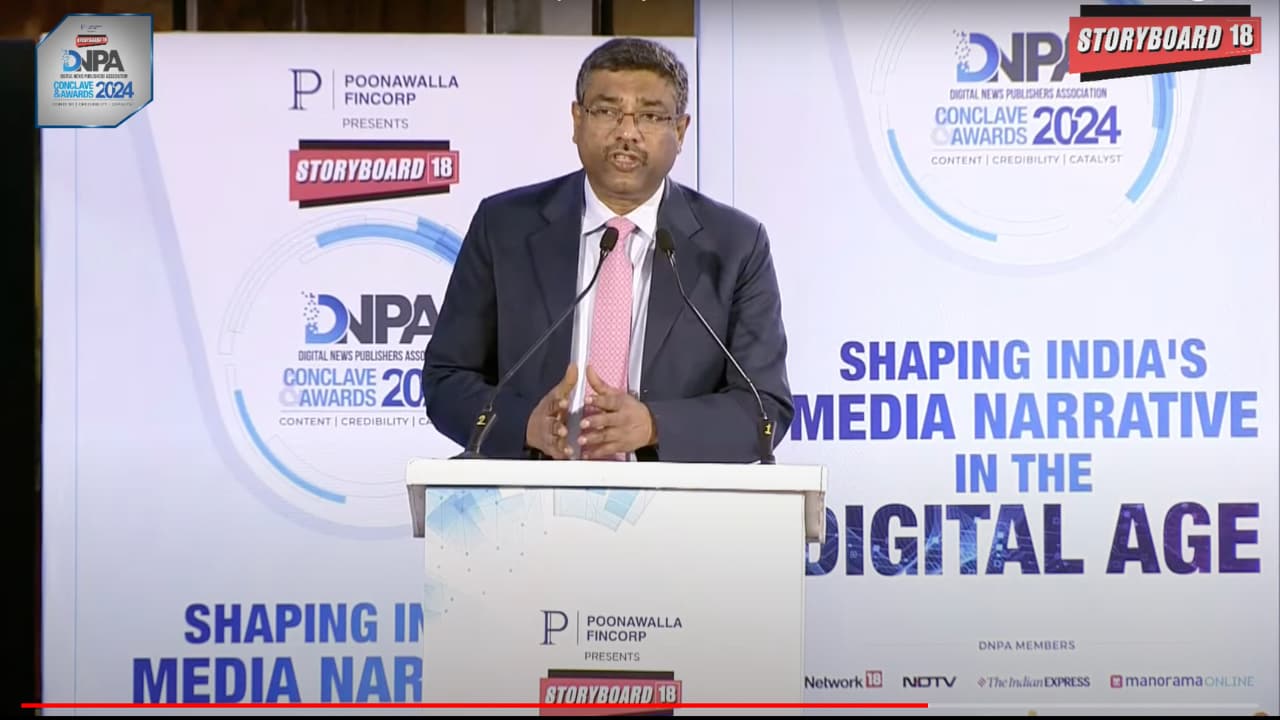The DNPA Conclave and Awards 2024 has kicked off in Delhi, with a focus on the future of digital media in a time of AI-led transformation and the relationship between news publishers and Big Tech platforms.
The conclave opened with an address by Tanmay Maheshwari, Chairman, Digital News Publishers Association (DNPA) and Managing Director, Amar Ujala and a stimulating discussion featuring Rajeev Chandrasekhar, Minister of State, Electronics and Information Technology, Government of India. The minister spoke about how India plans to lead the global race by adopting a digital first approach.
S Krishnan, secretary, Meity, government of India spoke about the advent of AI and how it will affect content creation, and the Digital India Act.
“Our perception within Meity has been dictated by the rapid changes that have been brought about by the emergence and adoption of artificial intelligence,” said Krishnan.
People are now waking up to the risks that AI now poses. However, when you look at it, it is more a matter of change in terms of degree than it its in terms of kind, added Krishnan. “Along this process, we realised that our laws currently don’t deal with the issues that they need to deal with,” said Krishnan.
The IT Act of 2000, was very detailed and forward-looking at the time, but formulated that most of the information simply needed to be carried from one medium to another. It has evolved quite a bit today. Internet intermediaries at the time were defined as people who simply provided a service. But that’s not the internet intermediary of today.
The internet has become very ubiquitous and everyone uses it to a great extent, that people today who produce news content digitally. Content that is generated through the internet by a news publisher after having done fact-checks, and someone who voices their opinion are treated the same. This is the problem that needs addressing.
“We want to rectify the mistakes of the last time. What goes on the internet in terms of free speech is essentially unregulated. “Law needs to be written in a way that it doesn’t need change at all. Pace of technological change makes it difficult to uphold current laws,” added Krishnan.
No one expected the advent of AI. The last change to the IT Act was made in 2021. “India is currently in good spot in terms of studying the global regulations of AI as nothing can be fully incorporated for the next 5 to 6 months as we’re entering the election period,” Krishnan said.
The Digital India Act is evolving and learning to provide for a solid, bank-able legislation. As of now, “None of the versions of the Digital India Act that are floating are the correct or final version,” Krishan said.
“Part of the current problem is that we don’t have a categorisation of internet intermediaries. Categorisation and giving each of them a unique set of regimes should solve the current issue,” he opined.
AI is here to stay. Krishnan too is of the belief that applications of AI will be towards enhancing productivity rather than hampering it or taking over completely.
